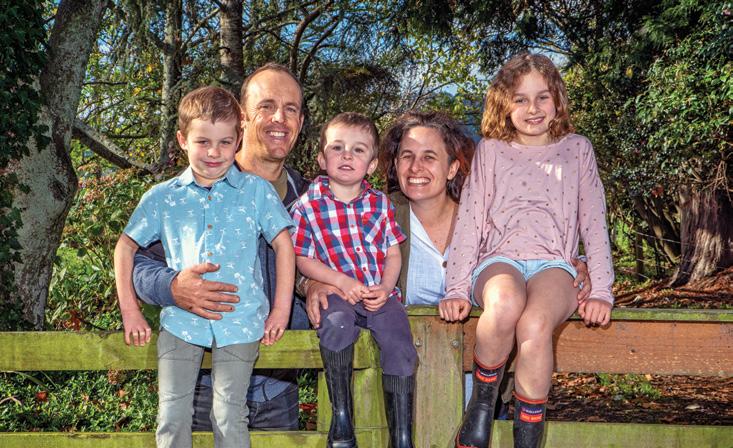WELLBEING SAFETY CHECKING
Why do preflight cheeks on airplanes...but not on these farm vehicles?
A question of perception…. Harriet Bremner and Poppy.
Harriet Bremner asks why we do plenty of safety checks for planes but not other vehicles we use.
B
ack in December the old man sat me down and said “Right, are you going to do your license or not?”. He was referring to my pilot’s license, a quiet dream of mine that had been burbling away at me for years, while sitting in the right-hand seat beside the pilot. In my early 20’s, flying became a part of getting around places with James, and I vividly remember helping him study all those exams with hundreds of cue cards to learn. He was an excellent pilot, a natural, and I always felt extremely safe with him in charge of the lefthand seat. He encouraged dad to follow his dream of flying too and gave him a voucher for Christmas one year and as they say, the rest is history. Hours of flying chat over the phone combined with fly-ins and adventures, it was a pretty cool thing that they did together. Before every flight occurred, there was always the routine of pre-flight checks from the structure of the plane to fuel, oil and engine checks and more. We simply never got in the plane without these occurring. Part of the culture ingrained in flying is that you must always thoroughly check your plane before taking off – no one likes an engine failure at the best of times, let alone when you are 100ft off the ground after taking off. It is never questioned, the pre-flight checks. I have never heard a pilot complain or mock the fact that you have to do all of these things every single time that you fly because we know that flying comes with risk. So, we take the steps to ensure that everything is good to go before we turn the key. It is a behavior that is ingrained in 84
flying and you wouldn’t question these checks because it makes sense to do them, so you can stay safe. As important as the pre-flight checks are in flying there is another huge factor that results in most light aircraft accidents and that is human factors. Human factors is a subject that focuses on the aspects of being human, such as our ability to process information, make decisions, communicate and adapt to situations, that either help or hinder people from performing their jobs safely. While I was studying for this particular exam, it was mind blowing to think how relevant human factors are to farming, with the decisions we have to make and the gear that has to be driven while on a range of terrain, coupled with the everyday stresses of life. I have learnt very quickly that if there is something happening that is causing me extra stress or anxiety that it affects my flying. Things that are going on in our lives have huge impacts and every week my instructor chats to me about what has been going on in my life to ensure that I am ‘fit to fly’ on that particular day. It could be that you are stressed because of things happening at work or someone nearly drove into you causing an accident on the way to your lesson or you are simply tired and strung out, in need of a week of good sleep and some down time. People talk about this stuff all the time in flying, the external effects from life and how it impacts your ability to perform to the best of your ability. The plane can be in tip top shape but if your mind is not then you are putting yourself at risk. Dairy Exporter | www.nzfarmlife.co.nz | May 2021


























